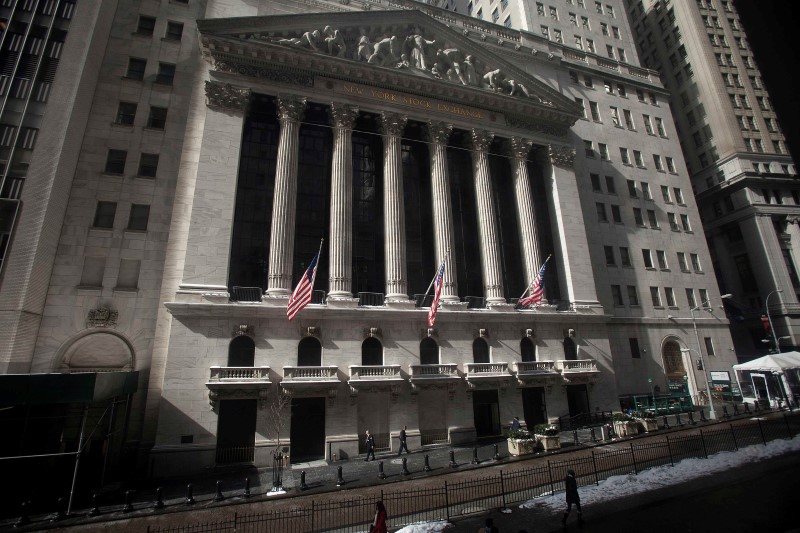This post was originally published on this site
https://i-invdn-com.akamaized.net/news/LYNXNPEB8S161_M.jpg
Investing.com — U.S. stocks opened modestly lower on Friday, seemingly immune to incremental progress in the development of vaccines that could end the Covid-19 pandemic.
By 9:40 AM ET (1440 GMT), the Dow Jones Industrial Average was down 19 points, or 0.1% at 29,464 points. It’s on course to end the week effectively flat, despite having surged on Monday in response to the news that Moderna (NASDAQ:MRNA)’s experimental vaccine is effective against the disease.
Since then. AstraZeneca (NASDAQ:AZN) has also confirmed its drug stimulated a strong immune response to the disease, especially in older people, while Pfizer (NYSE:PFE) and BioNTech (NASDAQ:BNTX) said on Friday that they will file their request for Emergency Use Authorization from the Food and Drug Administration today. Pfizer stock rose 1.4%, while BioNTech’s rose 4.7%.
The S&P 500 and the Nasdaq Composite were also down 0.1%.
The market was held back by the familiar problem of negative news in short-term developments on the virus front, and the less familiar problem of the Federal Reserve publicly at odds with the administration over Treasury Secretary Steven Mnuchin’s decision not to extend authority for a number emergency Fed lending programs past the year end. Mnuchin said on Friday morning that the money could be reappropriated and redeployed by Congress more effectively. Much of the potential firepower of the lending programs in question hasn’t been touched.
The Fed had taken the rare step of issuing a statement rebuking the administration for its decision on Thursday, saying: “The Federal Reserve would prefer that the full suite of emergency facilities established during the coronavirus pandemic continue to serve their important role as a backstop for our still-strained and vulnerable economy.”
Reuters reported that corporate debt prices fell sharply on Friday, on fears that the credit ‘backstops’ put in place earlier in the pandemic were being eroded. Markit’s high-yield credit-default swap index fell in price, a bearish signal, to 107.42% in Friday morning trade. The spread of Markit’s investment grade CDX widened to 55.61 basis points, also a bearish signal and its its highest since November 4.
Hopes for a quick end to the pandemic next year were overshadowed again by the grim near-term realities. Hospitalizations due to Covid-19 topped 80,000 nationwide for the first time on Thursday, while nearly 2,000 more deaths were reported, bringing the total to 252.299, according to Johns Hopkins.
Among early movers, Workday (NASDAQ:WDAY) stock fell 7.0% despite the company beating forecasts for the latest quarter after the bell on Thursday. Chief financial officer Robynne Sisco warned that headwinds from the pandemic would become worse next year.


